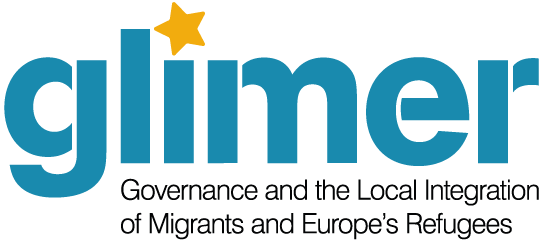Most language training policies for asylum seekers and refugees in Cyprus have been designed without taking gender into consideration. The issue with such policies is that to be gender neutral is to be gender blind — in other words, they fail to address the specific needs and realities of women, leading to unequal access to learning opportunities. Gender-blind language training policies impact women’s lives not only in their day-to-day, but also because they can be detrimental for their access to justice. According to a 2018 Convention on the Elimination of All Forms of Violence Against Women (CEDAW) report [1], migrant, asylum-seeking and refugee women who try to navigate legal processes to claim their rights frequently face language barriers.
At times, it’s the discriminatory attitudes of the decision-makers that pose barriers to learning. For example, one Cypriot who was being interviewed in the scope of the GLIMER project — whose institution was involved in the provision of language courses — said the following regarding the lower rate of participation of migrant women:
It’s the husbands who forbid the women from attending classes, because they are possessive and afraid of other men looking at their wives. Muslim culture, you know…
This kind of reported attitude is not reflected in our research, which often places practical issues at the root of low participation [2]. To back up this claim we note that the language training on offer in Cyprus broadly overlooks the dual role that migrant women tend to have as both family providers and caregivers, and the impact this role has on their availability to attend courses. Classes usually take place in the afternoons, when women — the primary caregivers — are usually busy taking care of their children after school.
One recent example that broke the mould was the Nicosia Municipal Multipurpose Foundation, which implemented two EU-funded integration projects side-by-side, allowing for a multi-lingual approach. While MINGLE provided Greek language training for adults, New Channels for the Integration of Third Country Nationals (TCNs) was a project that gave lessons in the local community to children of Arabic or Chinese origin in their native language. The foundation scheduled the classes in a way that worked for families: parents could attend Greek classes while the children attended classes in their mother tongue.
This is just one example of how gender-neutral — and therefore gender-blind — integration policies can easily be transformed into gender-sensitive ones. The upcoming National Action Plan on integration should not take a ‘one–size-fits-all’ approach, but instead should recognise the role of gender mainstreaming in language learning policies. Ultimately, this is the most important factor to ensure equal access to integration programmes for both women and men.
[1] UN Committee on the Elimination of Discrimination Against Women (CEDAW). (2018). State Party Report, Cyprus, CEDAW/C/CYP/8.
[2] Angeli, M. (2019). Language Education for Asylum Seekers and Refugees in Cyprus: Provision and Governance. Mediterranean Institute of Gender Studies. Nicosia: Glimer project.
